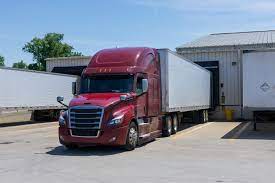Bonded Highway Carrier (Customs Glossary)
|
🔖 This article is part of the Customs Glossary Guide |
Bonded Highway Carrier
A transportation provider authorized to move commercial goods inland or through a country without payment of duty at the border.
Overview

In the context of North American trade, a Bonded Highway Carrier is a specialized transportation company that has posted financial security (a "bond") with customs authorities (CBP in the U.S. or CBSA in Canada). This bond serves as a guarantee to the government that the carrier will comply with regulations and pay any applicable duties if the goods are unlawfully released.
Unlike non-bonded carriers, who must clear all shipments at the First Port of Arrival (FPOA), bonded carriers have the privilege of moving goods "In-Bond" to an inland location for clearance or transiting through the country entirely.
Carrier Codes:
- Canada (CBSA): Bonded carrier codes typically start with a 2, 3, or 4.
- USA (CBP): Bonded carriers do not have a specific numbering scheme but must maintain an active Activity Code 2 (Custodian of Bonded Merchandise) bond on file.
Why Become a Bonded Carrier?
Becoming a bonded carrier unlocks significant operational flexibility:
| Benefit | Description |
|---|---|
| Inland Clearance | Avoid border congestion by moving goods to an inland Sufferance Warehouse (Canada) or Bonded Warehouse (USA) for clearance closer to the destination. |
| In-Transit Movements | Use a country as a "land bridge" (e.g., moving goods from Michigan to New York via Ontario, or Vancouver to Toronto via the U.S.) without paying duties to the transit country. |
| Trusted Trader Eligibility | Bonded status is a mandatory prerequisite for applying to trusted trader programs like C-TPAT, FAST, and CSA. |
U.S. Bonded Carrier Operations (CBP)
To operate as a bonded carrier in the United States, a company must file a CBP Form 301 (Customs Bond) with a surety company, typically for a minimum of $25,000.
Common U.S. In-Bond Moves
Bonded carriers file these movements electronically via ACE eManifest:
- IT (Immediate Transportation - Type 61): Moving goods from the arrival port to an inland port for entry.
- T&E (Transportation & Exportation - Type 62): Moving goods through the U.S. to be exported to another country (e.g., Mexico or Canada).
- IE (Immediate Exportation - Type 63): Goods arriving at a U.S. port to be immediately exported from the same port.
Canadian Bonded Carrier Operations (CBSA)
To operate as a bonded carrier in Canada, a company must post a D120 Customs Bond and obtain a bonded carrier code.
Required Documents
- A8A (Cargo Control Document): A paper document with a barcode presented at the border for goods moving inland to a sufferance warehouse.
- A8B (In-Transit Manifest): A specialized manifest for goods moving through Canada (U.S. to U.S.).
Note: If a non-bonded carrier needs to move goods in-bond (e.g., a one-time emergency), they can purchase a Single Trip Bond at the border, though this is costly and time-consuming.
Usage in BorderConnect
BorderConnect software is designed to handle all bonded carrier functions for both ACE and ACI.
For U.S. Shipments (ACE)
Bonded carriers can file QP In-Bonds directly within the software. Users can:
- Select "In-Bond" as the shipment type.
- Assign the IT, T&E, or IE designation.
- Generate the required 7512 document electronic data.
For Canadian Shipments (ACI)
Users can create an ACI eManifest with the "In-Bond" release type:
- Manifest Type: Select "In-Bond" instead of "PARS."
- Sub-Location: Enter the warehouse code (e.g., 5990) where the goods will be waiting for clearance.
- A8A Printing: Generate and print the required A8A Cargo Control Document directly from the manifest for the driver.
Official Resources
- CBP (USA): Notice to Carriers of Bonded Merchandise
- CBSA (Canada): Memorandum D3-4-2: Highway Cargo - Import Movements
- BorderConnect Wiki: How to Become a Bonded U.S. Carrier
